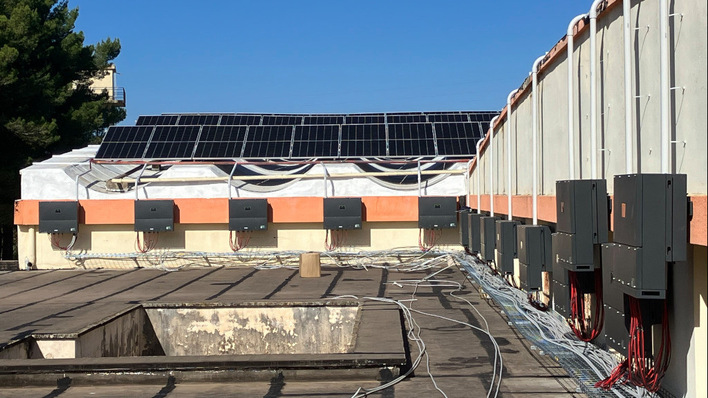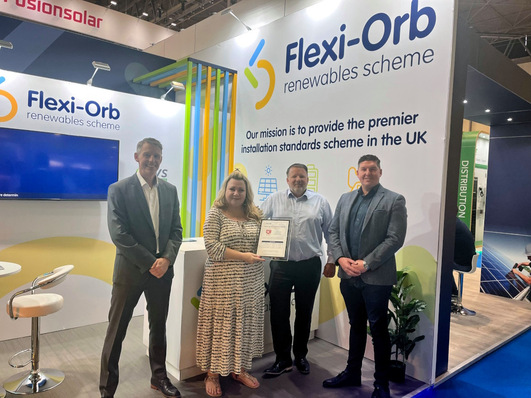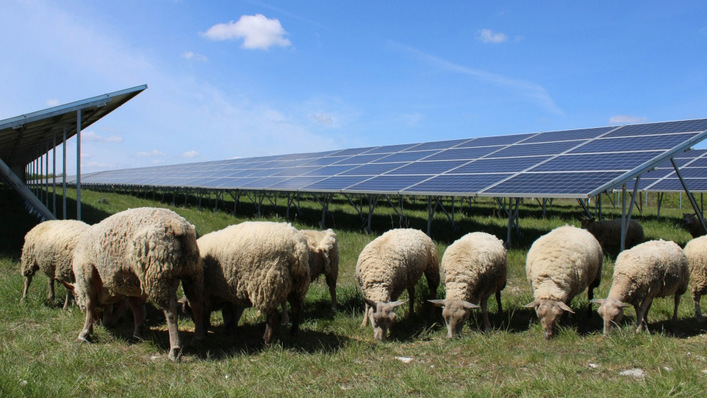For some time now, Q-Cells has been offering its commercial customers special options for obtaining more cost-effective solar power from their own roofs without having to make an investment. Now the system provider from Bitterfeld is cooperating with the company Tesvolt so that corporate customers can obtain green energy solutions that are precisely tailored to their needs - with high-performance storage units.
Solar power from one's own roof is the more cost-effective way for commercial customers to generate electricity. However, many medium-sized companies shy away from the planning and capital-intensive investment in their own solar power system.
With power contracting and plant leasing, Q-Cells offers two ways in which companies can benefit from low-cost, clean solar power without making their own investment.
Commercial storage starting at ten kilowatt hours
In both models, Q-Cells installs the solar system on the roof of the owner or building tenant at its own expense and supplies the company with the remaining electricity (green electricity) if required. Now Q-Cells and the storage provider Tesvolt from Wittenberg are cooperating to offer their customers tailor-made concepts.
Tesvolt produces intelligent storage units for commercial applications, and the Gigafactory is located in Wittenberg. Tesvolt offers the right storage unit for every application: as a high-voltage storage unit or in a low-voltage system, as an on-grid or off-grid solution. The storage capacity ranges from ten kilowatt hours to the megawatt range.
Saving costs with intelligent storage units
The integration of an electricity storage solution offers several advantages for commercial enterprises. On the one hand, businesses with high electricity consumption can effectively cover their load peaks and save considerable grid costs.
On the other hand, thanks to the storage unit, they can use the self-generated solar energy when it is needed - even at night. Selling solar energy on the electricity exchange also becomes more lucrative with a storage unit.
Conversion to electric vehicles
When converting company vehicles to e-drives, the storage unit acts as an efficient electricity charging station. High costs due to the expansion of the grid connection are eliminated. In any case, commercial customers who opt for power contracting or plant leasing of a solar power system with an energy storage unit maximise their sustainability.
See also: Tesvolt introduces new storage systems for commercial use
After all, with the storage unit they increase the self-consumption of the solar electricity produced on site. With their cooperation, Q-Cells and Tesvolt offer commercial solar customers more cost-effective and sustainable complete solutions for clean power supply from a single source.
Power Contracting: solar power without your own investment
With Power Contracting, Q-Cells is investor, owner and operator of the solar plant at the same time. Corporate customers purchase the solar power from the roof under a supply contract. Q-Cells markets surplus electricity that is not consumed on site elsewhere.
The remaining electricity required for phases when the sun is not shining also comes from Q-Cells - from ecological electricity sources in Germany and Austria. "With Power Contracting, we enable commercial customers to have an all-round carefree package for the clean and cost-effective purchase of electricity with solar energy as the central source of power," says Marc Tremel from Q-Cells. "The company does not have to make any investments of its own, because Q-Cells takes care of the consulting, planning, financing and installation of the solar system. We also take care of the operation and maintenance of the system as well as the supply of the required residual electricity."
Maximum cost savings through system leasing
With the system lease, Q-Cells remains the owner of the solar system, which in this case is leased from the respective commercial enterprise. In this way, the electricity purchaser becomes the operator of the system and saves even more costs.
Also interesting: Q Cells donates PV module to hurricane-hit region
The electricity consumed is considered self-consumption, for which only a proportional EEG levy of currently 2.6 cents instead of 6.5 cents per kilowatt hour is due. The direct marketing of electricity that cannot be consumed by the company itself and the supply of additional green electricity to cover the company's entire requirements is in turn handled by Q-Cells.
This business model can now also be realised with the inclusion of a storage solution. "With power contracting and plant leasing, commercial businesses save considerably on grid fees and surcharges," says Sven Huntemann of Tesvolt, "A storage unit also puts the company in a position to use the electricity it produces itself when it is needed for production or for charging e-vehicles. At the same time, commercial enterprises gain more financial planning security because they are no longer affected by rising electricity costs from the grid." (HS/mfo)







